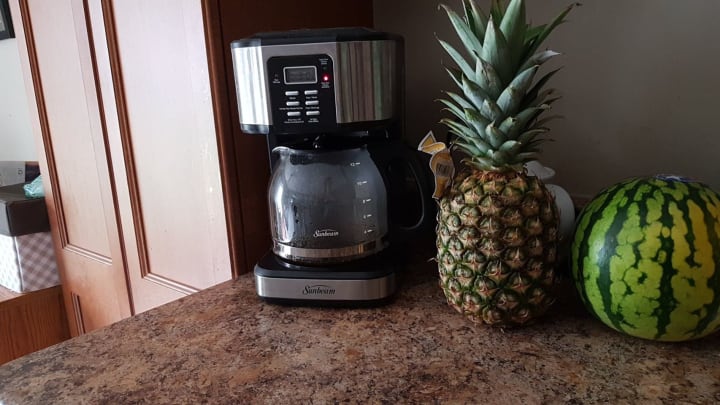Which Language Should You Be Learning?
Have you ever wanted to learn a new language with no idea where to start? Find the best option for your future studies!

Whether you're thinking of tackling a new and exciting hobby or want to become bi, tri, or multilingual, language learning is a huge step to completely changing your life (for the better).
Since a major task is finding a language that is right for you, there are many factors that you should take into account first and foremost. Consider your personality, your surroundings and your work ethic to choose the right path to follow and then enjoy the ride!
For the World Traveller

If you're the type of person who hopes to see everything that the world has to offer from Scandinavian Fjords to the Amazon, then sticking to the crowd is your best chance to have new experiences and memories. While there are thousands to choose from, languages that are considered the most commonly used around the world will give you the best chance to delve into new cultures on a global scale.
Standard Arabic (عربى)
Standard Arabic is one of the best options for a person who likes to travel. As the official language of 22 countries that is spoken by 420 million people worldwide, your proficiency in Arabic will help guide you through the Middle East and its rich culture.
Even though the standard version of the language will help you to get by in most places, there is a large range of dialects spoken in different countries like Morocco and Egypt that you can pick up during your travels with your basic foundation of the language. With 11 words for "love" and hundreds just for the word "camel," you are bound to enjoy learning the skills of Arabic.
French (Français)
You could also opt for something a little easier for the average native English speaker - French, for instance, is spoken in a whopping 29 countries by 275 million people worldwide. While it can be quite helpful in North America, you can also put it to good use in four other continents. The language is primarily used in Europe, Africa, and North America but there are still pockets of speakers in Asia, the Middle East, South America and Oceania. Along with the beauty of the language, French is truly beneficial if you enjoy worldwide exploration.
While being so widely spoken and connected by a depth of culture and history, French is understandably the language of travel, food and love. If you're interested in falling in love on the Eiffel Tower with a croissant in hand, then you'll be happy to hear that it's even one of the easiest languages to learn while being a basis for the other romance languages of the world - Spanish, Italian, Portuguese and Romanian.
English (English)
Although it may be quite obvious, English is one of the most crucial languages to master if you hope to navigate a large percentage of the world. Spoken by 375 million people in 50 countries (officially), as well as 55.5% of the internet, you cannot go wrong in mastering the language. It may not be spoken even by the majority of the current human population, it is still very powerful and profitable.
For The Challenge Seeker

While many people choose to learn a language for the sake of practicality or necessity, there is also a more thrilling side that can come with the new venture. If you are the kind of person who wants to throw themselves into something fun and challenging, then your options are wider than you might think.
Japanese (日本語)
Along with the obvious associations that one may have with Japan (anime, manga, sushi, martial arts, etc), the language is something quite unique and foreign to the Western world. Japanese is considered one of the hardest languages to learn as it carries so few similarities to English.
Japanese is very similar to Chinese in the fact that it has thousands of characters to memorize, there are three different writing systems and two syllabary systems. Although, despite being one of those intimidating Asian languages that seem nearly impossible to grasp, the act of learning and being able to communicate in Japanese is a huge accomplishment.
It is also worth mentioning that it comes with a few perks that may make the language seem a little more appealing. Surprisingly, the phonology (the sounds that it uses) is actually less complex than that of English. There are only five basic vowel sounds that are common in other languages. Also, no gendered nouns! A book isn't male and a chair isn't female. I'd say that's a pretty big plus.
Finnish (Suomalainen)
As the official language of Finland, Finnish is another particularly difficult language to master. With 15 grammatical cases and no connection to Latin or Germanic roots, native English speakers tend to have a tough time deciphering and adapting to the differences. It should also be noted that the use of some words requires special care when in use.
For example, the word "Kuusi" can translate to the number six, a spruce or "your moon," but pronouncing it as "Ku'uusi" means "as good as new," and saying it quickly, "Kusi," means "urine."
Some Finnish words also use agglutination (one word can translate to an entire sentence). The translations of each word can be broken up within the single word which can either be convenient or downright irritating. As another example, "Juoksentelisinkohan" translates to "I wonder if I should run around aimlessly."
Russian (русский)
Russian isn't exactly considered the hardest language but it is fairly common while still being insanely frustrating.
Russian script is called "Cyrillic" and is an especially difficult hurdle when trying to gain a basic understanding of the language. Most of the letters are foreign to the English alphabet but on the bright side, some are actually identical! This is a relief until you realize that some of them are covered in lies. If you come across the letter "H," don't be fooled, it is truly meant to be pronounced as an "N." And the letter "P?" Nope, that's an "R." And "P" is for "Rooski," amirite?
Don't be too discouraged though, probably the biggest asset to learning Russian is the fact that it is so heavily rule-based. That may sound a little bit strict and demanding but the benefit of all those rules to follow is that there are very few exceptions that you have to memorize. This may be one of the best things about the language aside from how intense you will sound while speaking it.
For The Introvert

With a world filled with "hustle and bustle," there are times when everyone would like to withdraw and relax alone for a while - but for an introvert (like myself), seclusion is a daily occurrence. Although spending time alone may seem sad and unbearable to some (definitely not to me), it truly can open up a whole world of possibilities.
Instead of spending your valuable time around others with expectations to meet, your time can be spent on something even more enjoyable (in my opinion) like language learning! Not only can you partake in something as common as French or Spanish, introverts can dive even deeper into something as complex (without the need for refined & scary communication skills, yay) as a dead language.
Latin (Latine)
One of the biggest reasons to learn Latin is that it is currently one of the most studied dead languages in the world because of its popularity in the western world's schools, the Christian church, and legal and political affairs. It also shares several similarities with English which provides a solid basis for learning the language - it is estimated that 29% of English vocabulary is derived from Latin while even sharing the same alphabet.
Aside from the shared words between them, a very large portion of the English vocabulary stems from and include Latin - this even allows the language to be considered that of law, government, logic, theology and all modern sciences. The assumption that Latin is useless when it comes to these areas (as well as all areas that relate to the English language) is simply incorrect. Learning the language is even encouraged to those who study science as there are so many similarities.
Cool Note: Modern sciences contain mostly Latin-derived terms because they were originally developed in the time of the Renaissance when educated people spoke either Latin or Greek.
Ancient Greek (Ελληνικά)
Greek is also a great language to learn despite having lesser similarities to English. While they share around 6-12% of vocabulary, there are multiple forms of the language - depending on the time period where it was used - that require separate study methods regarding the different alphabets and overall structures. This can be challenging but having the chance to learn how the language developed over time is interesting enough in itself.
Greek is the oldest recorded living language (earliest written forms were found on tablets from 1400 BCE in "Linear B script") and changed several times until it eventually became the version that is spoken today. From Proto to Mycenaean to Ancient Greek (which started the modern alphabet), its evolution provides lots of opportunities to explore the language. While Modern Greek is still used today, its earliest forms are considered "dead." And that's pretty sad when you think about it.
The real benefit that comes from studying Greek is that of insight and knowledge. There is a rich and beautiful history that provides more than just the proficiency in the language, there is also a certain understanding of the culture that only comes from learning the earliest forms of Greek.
Fun Fact: Hebrew was considered a dead language until the 19th century when it was studied once again, passed down through several generations and eventually revived as an official language in modern day Israel.
For The Workoholic

As many people with an interest in learning a new language have lives to maintain, there is often little time to spare for studying complex grammar structures and vocabulary every day. Since acquiring these skills requires a ton of time and energy that may need to be used for a 9 to 5 job or a busy school schedule, starting with something "easy" might be your best option. Without the need to focus on learning entirely new grammar rules and scripts, studying a language that is similar to English can take less energy and even feel fun and relaxing during your much-needed breaks.
Dutch (Nederlands)
Dutch is well known to be the easiest language to learn for native English speakers. While they both share Germanic roots, their grammar rules and vocabulary are often nearly identical. This makes the adaptation to the language much faster as an English speaker can spend less time memorizing completely new words, letters and grammatical systems. With something as familiar as Dutch, learners can often start communicating with native speakers and start progressing much faster.
Many English speakers are even able to understand basic sentences in Dutch without any previous knowledge solely because of their similarities in structure and vocabulary. If you are an English speaker yourself, there is a good chance that you are able to decipher a sentence like "Ik drink melk" or "Ik ben een man" without too much effort.
Norwegian (Norsk)
Another option that may not have crossed many peoples' minds is Norwegian. While it is not as widely spoken as many others, the language comes with countless shortcuts and similarities to English that make it so desirable to learn. With only a couple new letters to add to your already memorized English alphabet - those of which are only select vowels with slightly different sounds - your potential to quickly pick up Norwegian could surprise you.
The language is also fairly close to Dutch, considering it's familiar sounding vocabulary and grammar. There are some differences that may be tricky to grasp at first but continuing to spend whatever time you can spare on studying will take you much farther than the majority of other languages.
If you are considering learning Norwegian or have already started, you will have a much easier time picking up other Scandinavian languages like Danish and Swedish. This can come in handy if you choose to visit Denmark or Sweden (after Norway, of course) as many Norwegians can often decipher those languages because of their similarities.
Afrikaans (Afrikaans)
Afrikaans may seem like another odd choice to those who have English as their native tongue, but the language - spoken mostly in South Africa - shares its West Germanic roots. It originally evolved from Dutch vernacular which allows it to be so easily recognized (it is even considered a "daughter of Dutch") and is the fourth most spoken Germanic language after English, German and Dutch. If you were wondering why Afrikaans would be an ideal language to learn, just note a few perks that come along with it.
There is no such thing as "grammatical gender." Similar to English, there is only one word for "the" (Die) while every other Germanic language has two or three (German - Der, Die, Das). Verb conjugation is nearly nonexistent and there are only a few irregularities to memorize. Also, spelling is often simplified to fit fewer letters into words.
About the Creator
Enjoyed the story? Support the Creator.
Subscribe for free to receive all their stories in your feed. You could also pledge your support or give them a one-off tip, letting them know you appreciate their work.






Comments
There are no comments for this story
Be the first to respond and start the conversation.